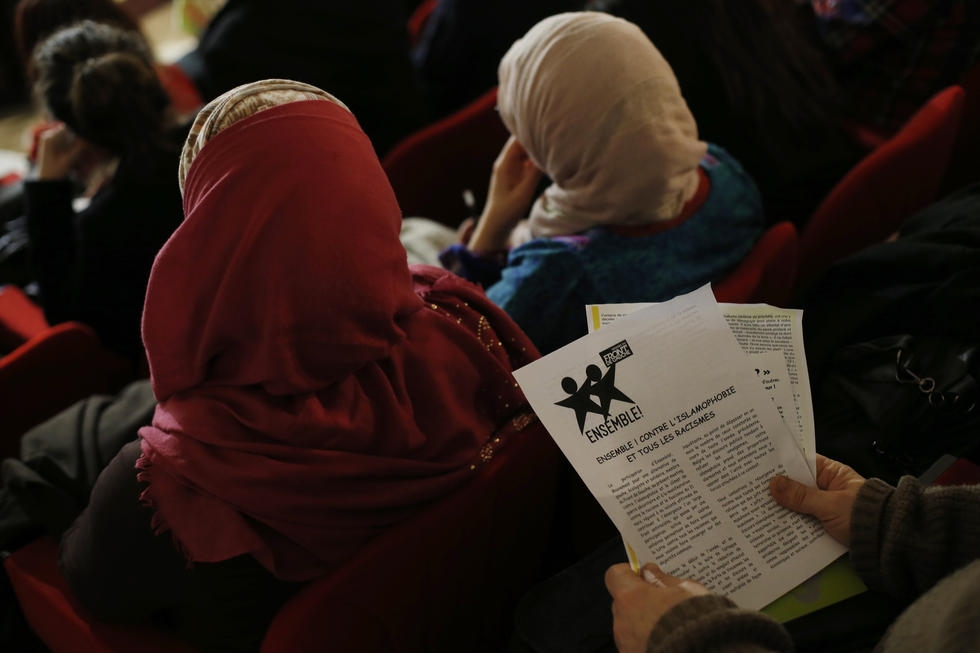Islamophobic attacks 'increase by 23.5 percent in France'

Islamophobic acts in France have increased by 23.5 percent in the first six months of 2015 compared with the same period last year, a French nongovernmental organization has said in a new report.
The figure was released on Thursday in a report titled "Islamophobia in France six months after the January 2015 terrorist attacks" by the Paris-based Collective against Islamophobia in France, referring to deadly shootings by Al Qaeda and Islamic State group-linked militants that killed 17 people across the country.
"Attacks against mosques, death threats against veiled women, school kids humiliated by their teachers, female students prohibited from wearing long skirts, religious profiling of Muslim children, propagation of hate speeches and even declarations of war on Muslims whom are portrayed as a fifth column [...] the consequences have been and still are dire for Muslims," the report said.
Physical assaults, according to the report, have increased by 500 percent and verbal attacks by 100 percent during the initial months of 2015.
"Discrimination and violence against adults are now joined by the humiliations inflicted on numerous Muslim children that have been blamed for the terrorist attacks," it said.
The report said, however, that few people are making complaints about Islamophobic acts because authorities “refuse to take complaints” and “perpetrators are rarely convicted”.
The report also referred to a recent dialogue between Muslim representatives and the French Ministry of Interior, noting that the ministry had "urged police officials to accept complaints from victims of Islamophobia".
France is home to nearly five million Muslims, most of who are from North Africa.
Middle East Eye propose une couverture et une analyse indépendantes et incomparables du Moyen-Orient, de l’Afrique du Nord et d’autres régions du monde. Pour en savoir plus sur la reprise de ce contenu et les frais qui s’appliquent, veuillez remplir ce formulaire [en anglais]. Pour en savoir plus sur MEE, cliquez ici [en anglais].




